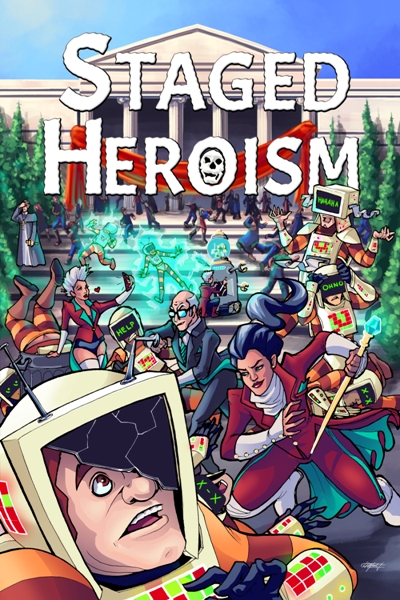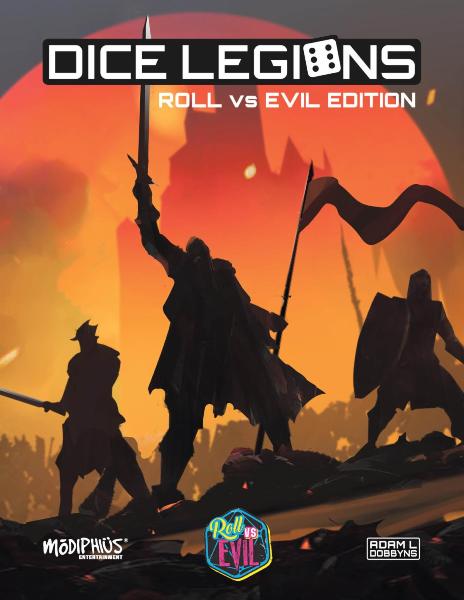What’s in a Name?
By The Warden
 Part of trying to achieve a dream career in a passionate field is coping with the rules and regulations of reality. There will always be a limit to success and potential based on extenuating factors as written in stone as the laws of physics. In the land of creativity, copyright is one of them.
Part of trying to achieve a dream career in a passionate field is coping with the rules and regulations of reality. There will always be a limit to success and potential based on extenuating factors as written in stone as the laws of physics. In the land of creativity, copyright is one of them.
I’m sure many of us are aware of the whole “space marine” incident brought to public attention this past week. If you’re awareness is founded solely on picking up bits and pieces on Twitter or hearing about it from friends in passing, let’s have the BBC explain things so we’re all on the same page.
(The short and sweet of it? OK, e-book author Maggie Hogarth released her latest offering, Spots the Space Marine, through Amazon and it was suddenly pulled in December 2011. The host site received a warning from Games Workshop, publisher for Warhammer 40K and many others, that they owned the trademark to “space marines” and this e-book was infringing on their copyrighted material. The e-book was pulled.)
What brings us to this week’s instalment of the Hood is the worst case scenario brought up by such a legal interpretation of events and the use of the noun “space marines” in popular fiction.
“In their last email to me, Games Workshop stated that they believe that their recent entrée into the e-book market gives them the common law trademark for the term ‘space marine’ in all formats. If they choose to proceed on that belief, science fiction will lose a term that’s been a part of its canon since its inception. Space marines were around long before Games Workshop. But if GW has their way, in the future, no one will be able to use the term ‘space marine’ without it referring to the space marines of the Warhammer 40K universe.
“In the Future, All Space Marines Will Be Warhammer 40K Space Marines”
by the blog’s author, MCA Hogarth
The furor sparked as it hit the mainstream social media this past week has since brought enough attention to this case that her e-book has been reinstated and is now back on sale after assistance from the Electronic Frontier Foundation (http://eff.org/) and public outcry. Part of that shouting involved the history of space marines in numerous forms of entertainment, going back as far as Robert Heinlein’s work in Starship Troopers (http://en.wikipedia.org/wiki/Starship_Troopers) and James Cameron’s Aliens for starters. Over the course of this past week, it seemed this tactic of trademarking seemingly ordinary and common words (including Marvel and DC’s shared holding of the term “superheroes”) brought to light a serious concern for the roleplaying business.
SPACE… PIRATES?
The concern brought to light the possibility of encountering such legal issues despite the best and innocent of intentions and it’s not as simple as “that’s stupid.” Nothing is. For example, while discussing this case with a fellow game designer, a friend of mine brought up a point about the ease of searching for any trademarks on the term “space marine.” A valid point, but it was then extended into a new level of concern. Without such laws and others like it, he pointed out how powerless he would have been to stop someone from blatantly stealing his latest RPG and clone it with a new name, text included. This is something that’s actually happened to him in the past.
From all the comments and shared posts I’ve seen elsewhere, the concern doesn’t seem to focus on the fact that a company such as Games Workshop has chained the term “space marine” to their back porch and refuse to let it play with the other junkyard dogs, but that it was enforced against an independent and self-published author. It’s a concern I share.
It’s not so much that they tried to pull an unrelated product from the public’s reach, but that they were allowed to pull an unrelated product from the public’s reach for a period of time. Ms. Hogarth was incredibly fortunate for this story to hit and take off as large as it did, but that was after thirteen months of frustration and empty promises. For thirteen months, that book was not being sold or pulling in any money for its author/publisher. This is a scary proposition for an independent RPG designer/publisher such as myself.
For example, just yesterday saw the launch of Mystical Throne Entertainment’s (the same people behind this very site you’re reading now) Perilous Journey Kickstarter, Twilight Continuum. Sure, this may look like a well-timed plug, but there’s the sheer fact that the story involves soldiers fighting in space. Having looked through all the material, I do not recall seeing any reference to the term “space marine” but what if it pops up one time? Or there’s an image on the cover to the first adventure clearly presenting our standard interpretation of space marines and the caption “marines in space” at the bottom? What if that happens to set someone off, especially in light of their recent legal chest thumping?
I’m not suggesting that’s even remote, but it’s something MTE has to put into this project to ensure all that time, energy, and money will not get flushed because of legal loopholes. And the merits of any legal action can be irrelevant because while the matter is being investigated (or as the accusation suggests in this recent case, automatic trust was given to the complainant), that product is pulled for an indeterminate amount of time. That’s the problem. It’s no better than being falsely accused of murder; you’ll never be able to have your name cleared until two to three years later at your trial. Ms. Hogarth may feel vindicated for her recent victory, but that doesn’t change the losses she suffered before that grand moment and could very well by liable for legal action on her part, if she chooses.
SUPERHEROES FOR SOME, META-HUMANS FOR THE REST
Granted, the example of space marines can be difficult to compare when it comes to roleplaying games for the sheer reason as to the very same trademark we’ve just been bitching about: the space marines trademark undertaken by Games Workshop was intended to specifically block other game publishers from creating a space marine game. So let’s turn to the other unexpected trademark mentioned earlier: superheroes.
There’s lots of those. Champions, ICONS, and Mutants & Masterminds are three major examples (not including the Marvel Heroic RPG by Margaret Weis Productions and DC Heroes released with Green Ronin as we could assume their licenses would automatically provide use of the term superhero). If someone decides to start cracking down on the use of the word “superheroes” without proper consent (AKA payments), where will these games stand when the first shots are fired? Removing the word “superhero” from a game’s cover is a daunting and expensive task as all current copies must be pulled (including PDFs), restored or destroyed, and reprints demanded to delay the game’s return as a “meta-human RPG” within the next six months to two years. Or else the publisher simply pulls the plug.
Much of these statements are based on some of the same principles of any conspiracy theory and all of them are linked into the central premise that someone directly involved would take the energy and effort to make this happen. At this point, all we’re missing is that individual (or corporation, as the case may be). Perhaps our products are a bit beneath the scope of any major trademark holder, but it’s safe to say Ms. Hogarth was no different.


